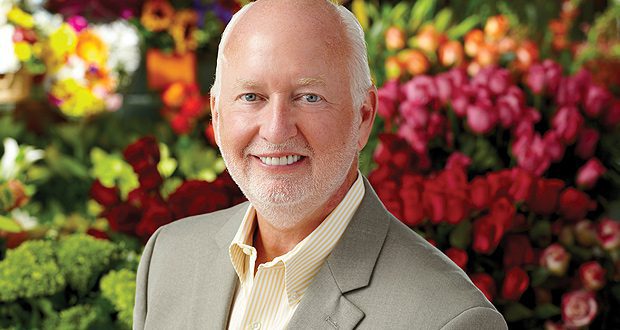 You’re facing one of the biggest hurdles of leadership—fixing a business that isn’t broken. You’re the founding CEO of the world’s largest florist, 1-800-Flowers, which has thrived for more than 35 years under your nurturing touch. You grew a business that people said couldn’t be scaled from a single New York flower shop into a retail chain and telemarketing powerhouse whose operations took root across the country. Next, you became an early pioneer in Internet sales and took your company public. But while revenues are now over $1 billion and your floral and gift company has operations in 70 countries, you know that you can’t rest on your laurels if the business is to continue to grow.
You’re facing one of the biggest hurdles of leadership—fixing a business that isn’t broken. You’re the founding CEO of the world’s largest florist, 1-800-Flowers, which has thrived for more than 35 years under your nurturing touch. You grew a business that people said couldn’t be scaled from a single New York flower shop into a retail chain and telemarketing powerhouse whose operations took root across the country. Next, you became an early pioneer in Internet sales and took your company public. But while revenues are now over $1 billion and your floral and gift company has operations in 70 countries, you know that you can’t rest on your laurels if the business is to continue to grow.
THE BACK STORY
Jim McCann was working as a social worker and part-time bartender when a barstool regular mentioned plans to sell his floral shop. Having just started a family, McCann was looking for a business with growth opportunity. He put in a few Saturdays at the store, found that he enjoyed it and took the plunge, picking up the operation for $10,000. “I wanted to build a business, not just a flower shop,” he recounts. “So six months later, I opened up my second shop and we averaged one shop every six months or so.”
Then came McCann’s lightning-in-a-bottle moment: changing the company’s name to 1-800-Flowers. In hindsight, the brilliance of the moniker may seem obvious, but at the time the market was dubious. “Everyone told us it would never work,” says McCann. “People don’t need to be able to order flowers 24 hours a day, they don’t need a seven-day guarantee.”
In all fairness, the naysayers were not entirely wrong. The company’s first telemarketing station averaged less than 40 calls a day—calls, not orders. But while the concept wasn’t an instant hit, McCann’s company soon reaped the rewards of the publicity generated, in part, by its very critics. “It was so novel that we got a lot of free ink, both people saying it was crazy and people saying it was revolutionary,” says McCann. “It wasn’t an instant hit but the press we got helped us become a brand.”
Given its maverick culture, it was only fitting that 1-800-Flowers also become one of the early adopters of Internet sales, staking its claim on the virtual marketplace early on by working with AOL and CompuServe. “It was probably 1996 when we realized that our business couldn’t continue to grow in a telephonic environment—we needed to put all our bets on the Internet,” says McCann. Similarly, when the social and mobile sales channel began to gain traction, the company took a proactive approach, becoming one of the first companies to enable transactions on Facebook.

Chief Executive Group exists to improve the performance of U.S. CEOs, senior executives and public-company directors, helping you grow your companies, build your communities and strengthen society. Learn more at chiefexecutivegroup.com.
0

1:00 - 5:00 pm
Over 70% of Executives Surveyed Agree: Many Strategic Planning Efforts Lack Systematic Approach Tips for Enhancing Your Strategic Planning Process
Executives expressed frustration with their current strategic planning process. Issues include:
Steve Rutan and Denise Harrison have put together an afternoon workshop that will provide the tools you need to address these concerns. They have worked with hundreds of executives to develop a systematic approach that will enable your team to make better decisions during strategic planning. Steve and Denise will walk you through exercises for prioritizing your lists and steps that will reset and reinvigorate your process. This will be a hands-on workshop that will enable you to think about your business as you use the tools that are being presented. If you are ready for a Strategic Planning tune-up, select this workshop in your registration form. The additional fee of $695 will be added to your total.

2:00 - 5:00 pm
Female leaders face the same issues all leaders do, but they often face additional challenges too. In this peer session, we will facilitate a discussion of best practices and how to overcome common barriers to help women leaders be more effective within and outside their organizations.
Limited space available.

10:30 - 5:00 pm
General’s Retreat at Hermitage Golf Course
Sponsored by UBS
General’s Retreat, built in 1986 with architect Gary Roger Baird, has been voted the “Best Golf Course in Nashville” and is a “must play” when visiting the Nashville, Tennessee area. With the beautiful setting along the Cumberland River, golfers of all capabilities will thoroughly enjoy the golf, scenery and hospitality.
The golf outing fee includes transportation to and from the hotel, greens/cart fees, use of practice facilities, and boxed lunch. The bus will leave the hotel at 10:30 am for a noon shotgun start and return to the hotel after the cocktail reception following the completion of the round.